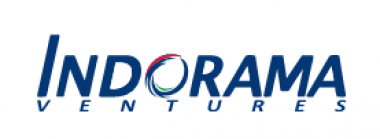Indorama Ventures: 1Q24 Performance
- Sales Volume rose 3% QoQ and 2% YoY to 3.55MT
- Adjusted EBITDA of $366M, a rise of 32% QoQ and a decline of 2% YoY
- Operating cash flows of $184M
- Net Operating Debt to Equity of 1.12
- Reported EPS of THB0.17
Indorama Ventures Public Company Limited (IVL) reported an improved quarterly performance as the prolonged destocking trend showed further signs of easing. During the quarter, the company progressed its IVL 2.0 evolved strategy to enhance earnings quality and transform its business to emerge stronger from the downturn in global chemical markets.
Indorama Ventures’ reported Adjusted EBITDA1 of $366 million in 1Q24, a 32% increase QoQ and a 2% decline YoY. Sales volume grew 3% QoQ as the widespread customer destocking that sapped demand through 2023 shows signs of a gradual recovery across all sectors, partially offset by a winter freeze in the U.S. The result was supported by lower utilities costs in Europe, Red Sea-related supply chain disruptions that benefited the company’s import parity advantages, and favorable shale gas economics that bolstered profitability in the U.S.
Indorama Ventures expects the recovery in volumes to continue through 2024, albeit at a gradual pace as destocking normalizes and the approaching summer supports demand. However, the overall landscape for the global chemical industry remains challenging due to excess capacity builds, as well due to persistent inflation and high interest rates which weigh on industry spreads and continue to impair profitability, especially across the polyester value chain. Our HVA segment ‘Indovinya’ is progressing well into the second quarter post the easing of destocking and anticipating a healthy 2024.
The company’s experienced management remains intensely focused on managing costs, optimizing competitiveness, and maintaining high liquidity. Indorama Ventures’ diverse geographical footprint is a key advantage in the current low-margin environment, allowing its businesses to maintain their strong market premium, supported by protection from trade and non-trade barriers.
In 1Q, the company made headway with its IVL 2.0 three-year plan to leverage its global leadership position and forge a new era of opportunity amid significant structural changes in chemical markets. Under the evolved strategy, which the company outlined at its annual Capital Markets Day in March, Indorama Ventures is optimizing assets, reducing debt, and focusing on generating free cash flow to deliver enhanced shareholder returns. Today, 70% of the company's revenue has deployed the SAPS/4HANA ERP and is using the infrastructure to enhance digital procurement, sales excellence, and integration of supply chains across the business. The company believes these AI tools will improve productivity and costs, as well as release working capital in line with its modernization strategy.
As part of IVL 2.0, the company is optimizing 7 sites, including the ongoing evaluation of its PTA/PET operation in the Netherlands. It has also made significant progress in its program to refinance $1.1 billion of debt within the first half of 2024 to ensure ample liquidity. Recent capital raisings include a $255 million ‘Ninja loan’, a THB 10 billion debenture, a $100M bi-lateral loan, and this week’s successful close of a $500 million syndicated loan – achieved at lower-than-average spreads compared to previous issuances.
To unlock value, Indorama Ventures is preparing its packaging and surfactants businesses for IPOs. From 1Q24, the Indovinya segment (previously named ‘Integrated Oxides and Derivatives’) is focused on developing its attractive downstream surfactants operations as a separate segment. The segment’s Intermediate Chemicals business, consisting of shale base integrated Ethylene MEG, MTBE and merchant Purified EO assets, have been moved under the Combined PET (CPET) segment where they are a natural fit.
Segment Performances
In 1Q24, CPET segment (including Intermediate Chemicals) posted Adjusted EBITDA of $249 million, a 34% gain QoQ and 4% YoY as supply chain disruptions and a consequent spike in global ocean freight rates supported high prices and margins, and as Western markets benefited from lower energy costs. The Indovinya segment reported a stable Adjusted EBITDA of $70 million, impacted by the winter freeze in the U.S and a mini turnaround at a PO/PG plant. The Fibers segment achieved a remarkable 73% increase in Adjusted EBITDA to $39 million QoQ, and 2% YoY, as destocking waned across all three business verticals and drove an 8% QoQ increase in volume.
Indorama Ventures Public Company Limited







